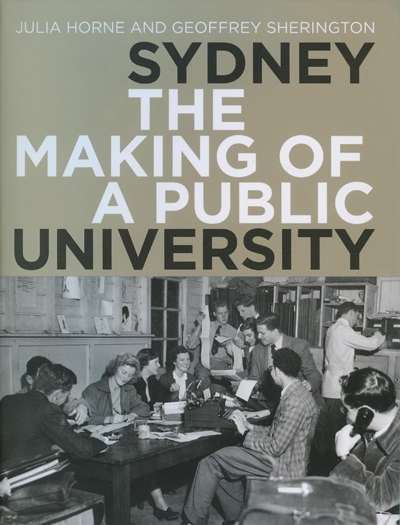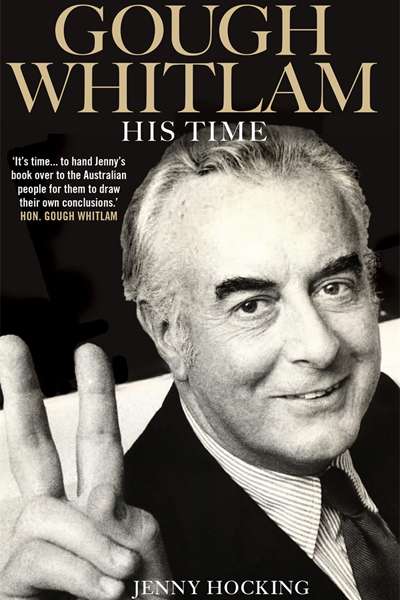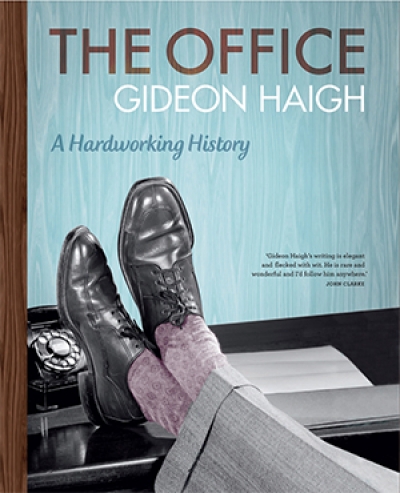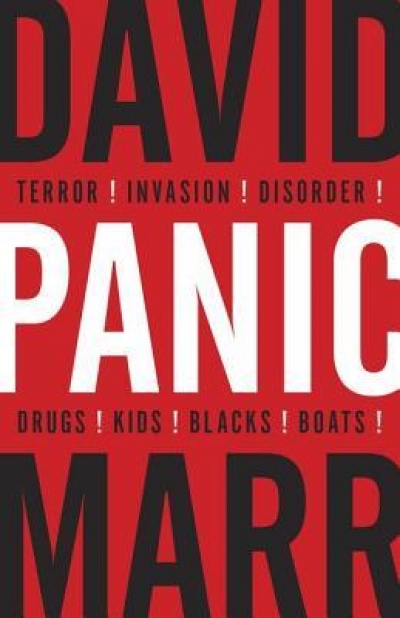Society
Sydney by Julia Horne and Geoffrey Sherington & From New Left to Factional Left by Alan Barcan
When I became an adjunct professor at the University of Sydney in 2004, I knew nothing of its history, and little of the ideological battles that had taken place there. These two books provide a rich narrative of both, and made me appreciate the privilege I have, even as a marginal player, in belonging to such a significant institution.
... (read more)Gough Whitlam: His Time: The Biography, Volume II by Jenny Hocking
Jenny Hocking concluded the first volume of her Whitlam biography (2008) on the eve of her subject’s electoral victory in December 1972. Gough Whitlam had been the most effective and creative opposition leader in Australian history: since 1967 he had dragged a protesting Labor party into the second half of the twentieth century; provided the party with a contemporary social democratic agenda; broadened the appeal of the party beyond its historic working-class base; and seen off one Liberal prime minister, with another to follow. The challenge for Hocking in this second volume is to explain how this promise turned to dust and ashes within three years, with Whitlam’s dismissal by the governor-general, followed by electoral repudiation. Meticulous and thorough research, a broad understanding of both the personal and structural factors underlying his government’s failure, and a commanding narrative drive enable Hocking to meet the challenge. There is no better account of how the triumph of 1972 turned into the catastrophe of 1975.
... (read more)What two things do the following people have in common: Samuel Pepys, Nathaniel Hawthorne, Honoré de Balzac, Charles Dickens, George Bernard Shaw, Émile Zola, Franz Kafka, P.G. Wodehouse, Dorothy L. Sayers, Kurt Vonnegut, and Gabriel García Márquez? Answer: they all did office work, and they all wrote about it. Regardless of Kafka’s conviction that ‘writing and the office cannot be reconciled’, the evidence is that the office breeds writing like nowhere else. From the Restoration period to the present, all the great themes of modernity seem to coalesce around it.
... (read more)What happens if we take seriously the metaphor of a marketplace of ideas? Philosopher John Armstrong and economist Carsten Murawski recently tested that question in an article on theconversation.edu.au, by exploring the implications of a market logic for higher education (20 March 2012).They argued that student choice would remodel the teaching and research agendas of our universities – not instantly but over time, much as water carves out shapes in sandstone. The online response was instant, and unambiguous. Academics and doctoral students rejected the language of markets as profoundly hostile to their vision of a university. If students start paying for instruction, said one respondent, institutions will soon pander to ‘the lowest common denominator amongst student interests’.
... (read more)David Marr is not on the list of Australian living treasures, but perhaps he should be. Among our best journalists, he stands out as someone who has consistently challenged the powerful, at his best with forensic skill and deep research. Like other journalist–authors such as Anne Summers and George Megalogenis ...
... (read more)In 2004 Carla Reed, a thirty-year-old kindergarten teacher, began to experience a cluster of mysterious symptoms. Bruises appeared and vanished ‘like stigmata’, and a numb headache and sudden exhaustion suggested that something was ‘terribly wrong’. Her pains were ghostly and mobile. When her doctors suggested migraines and prescribed aspirin, she demanded blood tests. She received a call to come back for more tests, and still recalls the urgency in the nurse’s voice. ‘Come now,’ Reed remembers her saying. ‘Come now.’
... (read more)In the past, a twenty-something could exemplify le dernier cri without having to dispense with his bicycle gears, reflectors, and brakes. Worry not. An infinitely cooler trend – less prone to vehicular mishap – is doubtless on its way to erase fixed-gear bikes, or ‘fixies’, from the palimpsest that is sub-cultural fashion. HipsterMattic, blogger Matt Granfield’s amusing début memoir, records his entrée into the fickle world of sartorial politics, organic produce, and National Bike Polo Championships.
... (read more)The Joy of Secularism: 11 Essays for How We Live Now edited by George Levine
The war of religion currently being fought with fusillades of paperbacks and feuilletons has taken a new turn. It started with an ambuscade by the ‘new’ atheists – also known as ‘militant’ or ‘Darwinian’ atheists – Richard Dawkins, Sam Harris, and the ubiquitous Christopher Hitchens (may he remain so). They were quickly joined by many sympathisers sharing the belief that peace, secularism, and rationality are under assault, not only from religious extremists, but also from the root religious ideas and attitudes that are presumed to nourish them.
... (read more)The Adelaide Park Lands: A Social History by Patricia Sumerling
Novelist Janette Turner Hospital’s recent essay in praise of New York’s Central Park remarked on its visibility from outer space. No doubt Adelaide’s Park Lands, an integral part of the 1837 vision of founding surveyor Colonel William Light’s plan for the city, can also be seen from outer space.
... (read more)Liberty: A History of Civil Liberties in Australia by James Waghorne and Stuart Macintyre
In 1988 the Hawke government put a constitutional amendment to a referendum. On the recommendation of the government’s Constitution Commission, we were invited to vote to enshrine guarantees of trial by jury, property rights, and freedom of religion. The proposition was rejected by all states. There is nothing surprising in that. We almost always do vote against constitutional amendment because the politicians of the right have always succeeded in persuading us that the original document (a free trade agreement between the federating colonies) is perfect and, in any case, any proposal for change is a left-wing plot to deprive her majesty’s loyal subjects of their common law freedoms.
... (read more)








